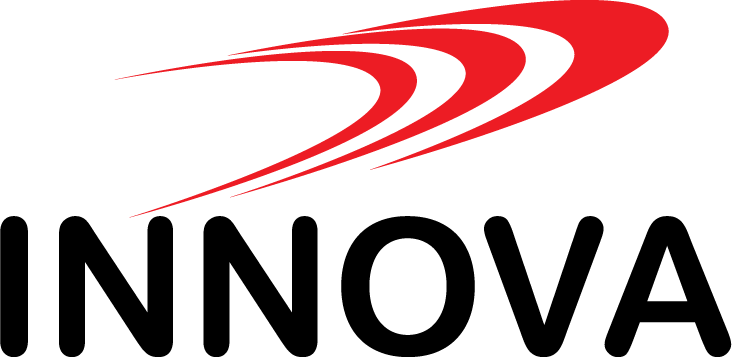What Are The Basics for Small Business Bookkeeping Accounting
Table of Contents
ToggleYou can only run a successful business with bookkeeping. Producing financial reports through efficient bookkeeping is essential to every business, but many need to realize how important it is to understand the basics of accounting. Most small businesses must know that basic principles must be followed to ensure accurate financial reports. Even though it might seem simple, bookkeeping tasks involve much more than just recording financial activities and balancing a few numbers. It requires knowledge about business finances and what goes into a profit and loss statement, cash flow management, tax return, and payroll. Understanding your business’s accounting will help business owners make better financial decisions. If you’re running a business, you owe it to yourself to learn the skills required to keep track of your finances. After all, keeping up with your books could save your business money, help you make better decisions, and give you peace of mind knowing that your business is being managed properly.
Innova Investments, LLC, we know that most of our clients need to be more expert in accounting or producing financial records. We’ll help you monitor your business activities and paint a financial picture so you can understand your company’s financial performance and run a successful organization. There is no need to hire in-house accountants who work late nights during tax season. Outsourcing with us is more cost-effective. Our accounting experts practice accurate bookkeeping and are well-versed in accounting software systems. Make Innova Investments your company’s accounting solution.
Need a Bookkeeper for Your Business?
Contact Innova Investments, LLC Today!
Call Us At 843-951-9555
How to Do Bookkeeping: Basics For Every Small Business Owner
Bookkeeping basics for small businesses include establishing a budget, understanding accounting software, and creating financial statements, income statements, balance sheets, and cash flow papers. These are all crucial aspects of running a successful business. There are many different bookkeeping options out there to record business transactions. Some people like QuickBooks Online because it offers cloud-based accounting software, while others prefer desktop versions. But what transactions do you need to register? What is the best method of accounting for your small business? Read on to learn some of the accounting basics and bookkeeping tips.

What Are The Basics for Small Business Bookkeeping Accounting
Bookkeeping isn’t rocket science, but it does require some basic math skills and a solid understanding of accounting principles. Read below to learn about bookkeeping basics.
1. Choose Your Bookkeeping Method
There are two central bookkeeping systems: single-entry bookkeeping and double-entry accounting. Single-entry bookkeeping, also called single-entry accounting, simplifies tracking your business finances. First, you enter your business expenses into your books whenever you purchase. Then, when it’s time to pay yourself, you subtract those expenditures from your income. Simple enough? Not exactly.
Double-entry bookkeeping keeps every dollar you spend, including purchases and payments. So, how do you reconcile your accounts without adding up your records twice? In short, you use a journal.
2. Set Up Your General Ledger
Centuries ago, businesses would record transactions in a physical book called a general ledger. Today, most companies keep track of their finances electronically. A general ledger is an electronic file that records money coming into and out of a business within a period.
A general ledger is usually kept separate from the rest of the books and records of a company. There are several different types of accounting ledgers. One way to categorize them is based on how many entries there are per day: daily, weekly, biweekly, monthly, quarterly, semiannual, annual, etc. Another way to classify them is based on whether it tracks each customer or groups them together. Using a spreadsheet is the cheapest method of setting up a general ledger.
3. Create Your Business Accounts
Your general ledger is organized into several different accounts. Each account records a specific type of transaction. For example, there might be an asset, a liability, a cash transaction, and an income account. These accounts are used to track the company’s assets and liabilities. Each one needs to be correctly set up, so do that.

Asset accounts record all the resources your company owns. This includes inventory, equipment, vehicles, real estate, and anything else that could be considered a resource. You’ll use an asset account to record everything that goes into making money. For example, if you sell products, you will record sales revenue in the asset account; if you buy office supplies, you will record purchases in an asset account.
Liability accounts record all the obligations and debt your company owes. This includes bills such as rent, utilities, insurance premiums, and even taxes. In addition, you’ll use a liability account to record all the expenses associated with running your business. For example, employee salaries are costs recorded in a liability account.
Cash accounts record all the finances coming into and out of your business. Cash is often referred to as “working capital.” A cash account is helpful because it lets you keep an eye on the revenue coming in and going out of your company. To keep track of incoming bills, written checks, and deposits, utilize a cash account. Transactions from your business bank accounts or bank statements also help record some of your business’ cash transactions and ensure that these are separated from your finances. A separate bank account should be used for any personal expenses or savings.
Income accounts record all the money that flows into your company. Income is often called “revenue,” but it can include many different sources of income, including fees charged for services, interest earned on loans, royalties received from intellectual property, and dividends paid from stock holdings. You’ll use an income account to record all the money that comes into your business.
4. Record Every Financial Transaction
You’ve finally got your books up and running and are ready to start recording financial transactions. There are four different ways to track your finances. Each method has advantages and disadvantages, depending on what type of information you want to see and whether you prefer to use paper or electronic records.

Writing down everything that happens to your money is the most straightforward approach to tracking your finances. All purchases, payments, deposits, withdrawals, bills, taxes, etc., are included in this. You could record your company transactions using a notepad or pen and paper if you don’t have access to a computer.
If you’d instead use simple spreadsheet software to manage your finances, one of the best options is QuickBooks Online. With this program, you can quickly enter your transactions into separate categories: income, expenses, business assets, liabilities, and equity. You can even add notes to each entry to help you remember why you did something.
5. Balance the Books
The final step in basic bookkeeping involves closing out the books, including balancing the accounts and posting transactions to the reports. The totals should match when you tally up account debits and credits, often at the beginning of the day, week, or month. If they do, this indicates that your ledgers are balanced. This is because you’ve recorded journal entries to accounts as debit and credit transactions. At the end of the accounting time, you post these entries to the accounts and adjust the account balances.
The Takeaway
By now, you should understand some accounting basics for your businesses. However, there are still many accounting methods out there. We’re not promising you’ll become a master bookkeeper overnight, but stay at it. The key to your company’s long-term success is to concentrate on these aspects of bookkeeping.
Although if bookkeeping is one of those things that many small businesses never think about doing themselves because it seems like too much work. Some small businesses turn to public accountants or accounting professionals to assist them. If you’re overwhelmed with basic accounting tasks like tracking sales, keeping track of inventory, and managing accounts receivable and payable, outsourcing might be just what you need.

Frequently Asked Questions
Is Basic Bookkeeping Hard?
Yes, basic bookkeeping is complex. Finding the time and energy to keep your books correctly can be draining and challenging for the always-busy small business owner.
How Do You Do Bookkeeping Expenses?
In bookkeeping expenses, expenses are always recorded as debit entries, while income items are registered as credit entries.
Can I Teach Myself Bookkeeping?
Yes, you can learn bookkeeping on your own. A person can use a variety of high-quality online tools to understand bookkeeping. Enrolling in courses that include fundamental bookkeeping and advanced accounting is crucial.
Taking Care Of All Your Bookkeeping Needs
If bookkeeping keeps getting pushed away as your business grows, consider hiring someone to help you. At Innova Investments LLC, we’re confident that we’ve got the right people for the job. We can handle financial reporting and provide accurate records to sole proprietors, partnerships or corporations, or whatever business structure you practice. Our bookkeepers understand the accounting process and can do everything for you entirely online – no paper forms, spreadsheets, or manual data entry required. We’ll take care of your monthly accounting, and accounts payable, produce accurate financial statements, and even assist you during tax time. Contact us to get a full range of our services, tools, and resources to help you run your business better and make informed business decisions.
Looking for Bookkeeping Services?
Book an Appointment with Innova Investments, LLC
Contact Us at 843-951-9555 Today!

